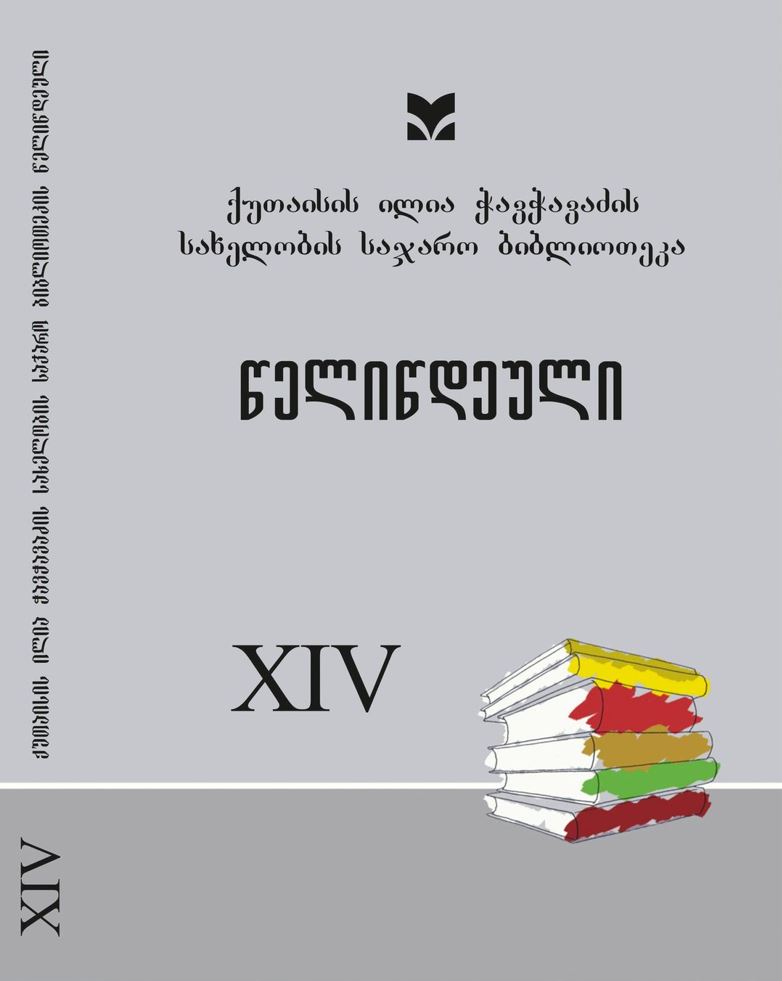საქართველოს დემოკრატიულ რესპუბლიკაში აფხაზეთის პოლიტიკური სტატუსის ისტორიიდან (1918-1921 წწ.)
DOI:
https://doi.org/10.61491/yk.14.2022.6991საკვანძო სიტყვები:
აფხაზეთის პოლიტიკური სტატუსის ისტორია, ადმინისტრაციულ-ტერიტორიული ცვლილებები საქართველოს დემოკრატიულ რესპუბლიკაში (1918-1921), აკაკი ჩხენკელის მოგზაურობა აფხაზეთშიანოტაცია
The political status of Abkhazia during the collapse of the old Russian statehood and the subsequent formation of national republics in the South Caucasus region remains a contentious subject in modern histori-cal research. While the historical connection of Abkhazia to Georgia as an integral part is indisputable, vari-ous works in foreign languages have presented this issue through the lens of Soviet propaganda. The govern-ment of the Democratic Republic of Georgia faced formidable challenges from its inception, as it sought to establish an independent Georgia within its historical borders, including the territory of modern Abkhazia, currently under foreign occupation. Hence, an examination of the political status of Abkhazia in the Democratic Republic of Georgia remains highly relevant today. The purpose of this research is to investigate the status of Abkhazia during the period of the Democratic Republic of Georgia by conducting an objective anal-ysis of archival documents.
Based on objective scrutiny, the following conclusions can be drawn: a) During the existence of the Democratic Republic, it was possible to restructure the administrative unit of the Sokhumi district of the Rus-sian Empire into an autonomous Abkhazia; b) On June 11, 1918, the „People’s Council of Abkhazia“ signed an agreement that granted autonomy to Abkhazia as a part of the Democratic Republic of Georgia; c) On Oc-tober 16, 1920, the draft constitution of Abkhazia was adopted during the People’s Council meeting and sub-sequently submitted to the Constituent Assembly for approval. The „Statute on the Management of Autonomous Abkhazia“ was prepared based on this document and received approval from the founding assembly on February 21, 1921. From 1919 onwards, Abkhazia enjoyed de facto powers in agreement with the Govern-ment of Georgia. The extent of autonomy granted to Abkhazia through this provision exceeded any previous rights bestowed upon the region, as it encompassed complete self-governance and full autonomy in domestic affairs. On February 21, 1921, the constitution of the Democratic Republic of Georgia, approved by the Con-stituent Assembly, officially recognized and legalized the autonomous status of Abkhazia within the unified Georgian state. The participation of Abkhazia’s representatives in the creation of this constitution further ce-mented the autonomous status of Abkhazia.
Through an objective analysis of archival materials and historical documents, this research sheds light on the complex and nuanced political developments surrounding the status of Abkhazia in the Democratic Republic of Georgia. By providing an unbiased examination of the subject matter, this study contributes to a more comprehensive understanding of the historical and political dynamics of Abkhazia during this pivotal period.




